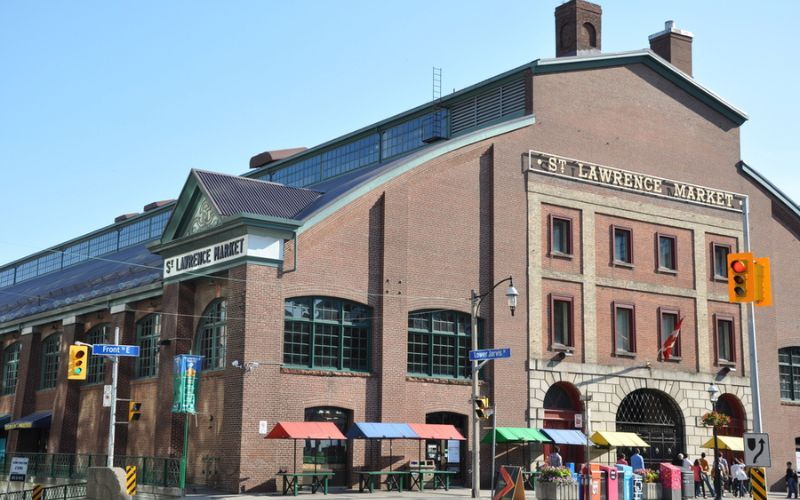Jan 16
Current Investment Property Mortgage Rates Ontario
For any real estate investor, understanding the landscape of mortgage rates is crucial. In Ontario, where the property market is as dynamic as ever, mortgage rates directly influence financing costs and, consequently, your overall investment returns. Whether you're a seasoned investor or just stepping into the world of real estate, staying on top of current mortgage rates can empower you to make smarter, more strategic decisions.
In this article, we’ll break down the key factors affecting mortgage rates for investment properties in Ontario. We’ll also explore the latest rates, give you actionable insights on how to secure the best terms, and discuss how Ontario’s real estate forecast can shape your investment strategy over the next five years.
Ontario Real Estate Forecast 2024-2029: Effect On Investment Property Mortgage Rates

Ontario’s real estate market is poised for exciting developments in the coming years, with trends set to influence mortgage rates and property demand. According to the Ontario Real Estate Forecast 2024-2029, factors like population growth, new urban areas, and evolving economic conditions will drive shifts in the market.
Understanding these projections is essential for investors who want to stay ahead of the curve. For instance, the increasing demand for rental properties in cities like Toronto and Ottawa will likely spark more competition among investors, affecting both mortgage availability and terms. By staying informed, you can position yourself strategically and lock in the best rates, ensuring your investments align with long-term market trends.
Current Investment Property Mortgage Rates In Ontario
| Mortgage Term | Rates From | Payments ($/mo) |
| 6 Month Fixed | 3.49% | $2,500 |
| 1 Year Fixed | 5.79% | $3,157 |
| 2 Year Fixed | 4.84% | $2,876 |
| 3 Year Fixed | 4.29% | $2,719 |
| 4 Year Fixed | 4.59% | $2,804 |
| 5 Year Fixed | 4.24% | $2,705 |
| 5 Year Open | 5.95% | $3,206 |
| 5 Year Available | 4.85% | $2,879 |
*As of Q1 2025. For the most up-to-date mortgage rates in Ontario, please check out Ratehub.Ca.
Note: Payments are approximate and calculated on a $500,000 mortgage amortized over 25 years.
Note: Payments are approximate and calculated on a $500,000 mortgage amortized over 25 years.
Key Factors That Impact Investment Property Mortgage Rates

When it comes to securing financing for investment properties, mortgage rates can vary significantly. Several factors play a key role in determining the rates you’ll encounter, and understanding these elements is crucial for securing the best terms. By knowing how lenders assess your investment and what influences rates, you can position yourself to get more favorable terms.
Here’s a breakdown of the main factors that impact investment property mortgage rates:
Here’s a breakdown of the main factors that impact investment property mortgage rates:
Down Payment Requirements
A significant factor affecting your mortgage rate is the size of your down payment. For investment properties, lenders typically require at least a 20% down payment. This is due to the higher risk associated with non-owner-occupied properties.
The larger your down payment, the less risk the lender takes on, which can result in lower interest rates. In some cases, a down payment of 25% or more may yield even better rates, as it signals greater financial stability and reduces the lender's exposure.
The larger your down payment, the less risk the lender takes on, which can result in lower interest rates. In some cases, a down payment of 25% or more may yield even better rates, as it signals greater financial stability and reduces the lender's exposure.
Amortization Period
The amortization period is the length of time you take to fully repay the mortgage. In Ontario, if you make a down payment of at least 20%, lenders often allow you to choose an amortization period of up to 30 years. A longer amortization period typically results in lower monthly payments, which can help improve your cash flow. However, while this reduces your immediate financial burden, you’ll end up paying more in interest over the life of the mortgage.
Choosing a shorter amortization period, such as 25 years, means your monthly payments will be higher, but you’ll pay significantly less interest overall. This option could be more cost-effective in the long term, especially for investors looking to maximize profitability and minimize total interest paid.
For more insights into managing investment properties, including considerations like renters' insurance, check out Is Renters' Insurance Mandatory for Ontario Investment Properties.
Borrower's Financial Profile
Lenders assess your financial profile when determining mortgage rates. This includes evaluating your credit score, debt-to-income (DTI) ratio, and net worth. A higher credit score, typically above 720, shows that you are financially responsible, making you a more attractive borrower.
A lower DTI ratio—indicating fewer financial obligations in relation to income—also increases your chances of securing favorable terms. Essentially, the stronger your financial profile, the better your mortgage rate is likely to be.
A lower DTI ratio—indicating fewer financial obligations in relation to income—also increases your chances of securing favorable terms. Essentially, the stronger your financial profile, the better your mortgage rate is likely to be.
Market Trends and Economic Factors
Finally, broader economic factors, such as the Bank of Canada’s overnight rate and inflation outlook, play a role in determining mortgage rates. For example, when inflation is high, the Bank of Canada may raise interest rates to cool down the economy, which in turn influences the rates available to borrowers. These fluctuations can directly impact both fixed and variable mortgage rates.
By keeping an eye on these broader market trends and economic forecasts, you can better anticipate changes in interest rates and adjust your strategy accordingly.
By keeping an eye on these broader market trends and economic forecasts, you can better anticipate changes in interest rates and adjust your strategy accordingly.
How To Secure The Best Rate

Securing the best mortgage rate isn't always about luck; it's about making smart moves. While some factors are beyond your control, there are several strategies you can use to increase your chances of locking in a competitive rate:
Compare Multiple Lenders
Don’t settle for the first rate you’re offered. Take the time to compare rates from various lenders, including banks, credit unions, and mortgage brokers. This will help you identify the best deal available for your financial situation.
Boost Your Credit Score
A higher credit score can significantly improve your chances of getting a lower interest rate. Aim for a score of 720 or above to demonstrate your financial responsibility and make s you eligible for better mortgage terms.
Partner with a Mortgage Broker
Mortgage brokers have access to a broad network of lenders and can often secure more competitive rates than you’d find on your own. By working with a broker, you gain access to options that may not be available directly to consumers.
Make Smart Mortgage Choices for Your Ontario Investment
Understanding mortgage rates is crucial when it comes to making smart investment choices in Ontario's ever-changing real estate market. With so many factors at play, knowing how rates work can help you keep your costs down and boost your returns. Your down payment, the type of property, and your financial situation all come into play when determining your mortgage rate.
Looking ahead, Ontario’s real estate market is expected to stay strong, especially in cities like Toronto and Ottawa. By staying informed and paying attention to the latest trends, you can make sure you’re getting the best rate possible for your investments.
To get the best deal, take time to compare lenders, work on improving your credit score, and consider partnering with a mortgage broker. These simple actions can help you secure a better rate and put you on the path to success.
For more powerful investing content, check out Strategic Success Consulting.
Looking ahead, Ontario’s real estate market is expected to stay strong, especially in cities like Toronto and Ottawa. By staying informed and paying attention to the latest trends, you can make sure you’re getting the best rate possible for your investments.
To get the best deal, take time to compare lenders, work on improving your credit score, and consider partnering with a mortgage broker. These simple actions can help you secure a better rate and put you on the path to success.
For more powerful investing content, check out Strategic Success Consulting.
Frequently Asked Questions
What is the minimum down payment required for an investment property in Ontario?
For investment properties in Ontario that are not owner-occupied, the minimum down payment is typically 20% of the purchase price. A larger down payment can improve your chances of securing more favorable interest rates and terms.
Are fixed or variable rates better for investment properties?
Fixed rates offer stability and predictable monthly payments, making them a good choice for investors who prefer consistency and want to avoid interest rate fluctuations. On the other hand, variable rates can result in lower payments if interest rates decrease, but they carry the risk of higher payments if rates rise.
COACHING
Service is at the heart of everything we do at Strategic Success Consulting. You'll experience the difference when you talk to our associates, and you'll see the difference that exceptional makes in your learning journey. Book a Discovery Call for more information!
COURSES
We offer Strategies, Courses, Modules and Deep Dives to help support you throughout your business or real estate investing journey.
EVENTS
Come check out our Strategic Entrepreneur Networking events in person or online! We also host webinars, workshops and other events that you can find on our events calendar!
ABOUT US
At Strategic Success Consulting we uphold an ongoing commitment to providing an elevated level of personal service. Our clients come first, and as a result, they are able to achieve more than they ever dreamed with their business and/or real estate investing.
Copyright © 2024 Strategic Success Consulting Inc. All rights reserved.
